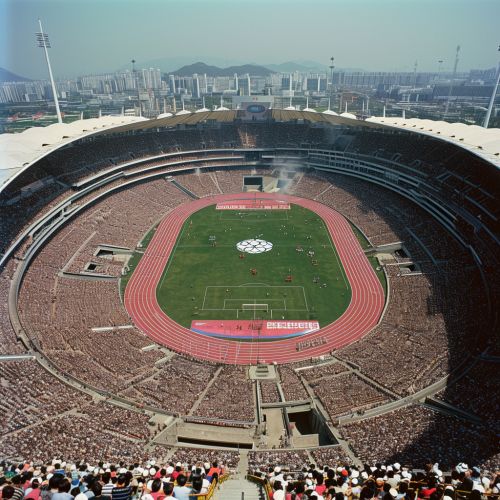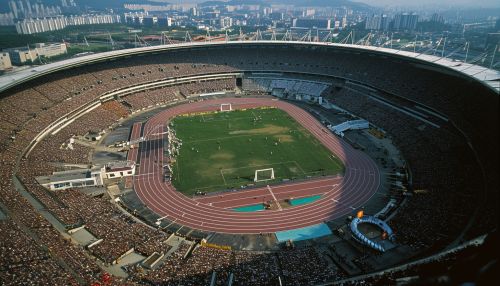1988 Summer Olympics
Overview
The 1988 Summer Olympics, officially known as the Games of the XXIV Olympiad, were an international multi-sport event held from September 17 to October 2, 1988, in Seoul, South Korea. This marked the second time that the Olympic Games were hosted by an Asian country, following the 1964 Summer Olympics in Tokyo, Japan. The Seoul Games were notable for several reasons, including the participation of the Soviet Union and East Germany for the last time before these states were dissolved, and the reinstatement of professional athletes' eligibility to compete in certain sports.


Bidding and Preparation
The selection process for the 1988 Summer Olympics involved bids from five cities, including Seoul. The South Korean capital was awarded the Games in September 1981 by the International Olympic Committee (IOC), marking the first time the Summer Olympics would be held in the country. The preparation for the Games involved significant urban development in Seoul, including the construction of new sports venues, transportation infrastructure, and accommodations for athletes and visitors.
Participating Nations and Athletes
A total of 159 nations sent athletes to compete in the 1988 Summer Olympics, a significant increase from the 1984 Summer Olympics in Los Angeles, which were boycotted by 14 Eastern Bloc countries, including the Soviet Union. The Seoul Games saw a record number of athletes participating, with over 8,000 athletes—comprising both men and women—competing in 23 sports and 237 events. Notably, this was the last Summer Olympics where the Soviet Union and East Germany participated; both countries ceased to exist before the next Games.
Sports and Events
The 1988 Summer Olympics featured competitions in 23 sports, encompassing a total of 237 events. This included traditional Olympic sports such as athletics, swimming, and gymnastics, as well as newer sports like taekwondo, which made its debut as a demonstration sport. The Games also saw the introduction of the women's marathon and table tennis events. The most successful nation in terms of medal count was the Soviet Union, followed by East Germany and the United States.
Controversies and Issues
The Seoul Games were not without controversies and issues. The most infamous incident was the disqualification of Canadian sprinter Ben Johnson, who initially won the gold medal in the men's 100-meter race but tested positive for steroids. His disqualification marked the first time a gold medalist had been stripped of their medal for doping. Other issues included several instances of judging controversies in boxing and modern pentathlon, and the politically charged atmosphere due to the participation of both North and South Korea.
Legacy
The legacy of the 1988 Summer Olympics is multifaceted. On one hand, the Games were a showcase for South Korea's emergence as a global economic power. On the other hand, they highlighted the ongoing issues of doping and corruption in sports. The Seoul Games also set a precedent for the inclusion of professional athletes in the Olympics, a trend that continues to this day.
